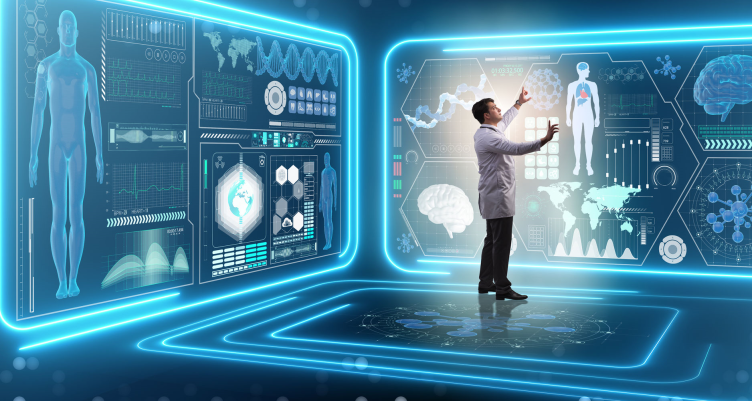Technology has become an inseparable part of modern life, influencing everything from how we communicate to how we work, learn, and entertain ourselves. As advancements continue at an unprecedented pace, technology is not just changing industries—it’s reshaping the very fabric of society. This article delves into the evolution, impact, and future of technology, providing a comprehensive overview of its role in our world.
1. The Evolution of Technology
From the invention of the wheel to the rise of artificial intelligence, technology has continuously evolved to meet the changing needs of society.
Ancient Innovations
Early technologies focused on survival and convenience—tools for hunting, agriculture, and basic construction. The discovery of fire, the invention of the wheel, and the development of writing systems marked the dawn of human innovation.
The Industrial Revolution
The 18th and 19th centuries brought about the Industrial Revolution, introducing mechanization and steam power. Factories replaced small workshops, leading to mass production, urbanization, and improved standards of living.
The Digital Age
The 20th century witnessed the emergence of computers and the internet. By the 1990s, the World Wide Web had revolutionized information sharing, giving rise to a connected world and ushering in the Information Age.
2. Key Areas of Modern Technology
Technology spans multiple domains. Each area contributes uniquely to the development and functionality of contemporary society.
a. Information Technology (IT)
Information Technology deals with computers, software, networks, and data management. It underpins business operations, supports online services, and enables global communication.
b. Artificial Intelligence (AI)
AI mimics human intelligence through algorithms, enabling machines to learn, reason, and make decisions. It powers applications such as voice assistants, predictive analytics, and autonomous vehicles.
c. Biotechnology
Biotechnology integrates biology and technology to develop medical and agricultural innovations. Genetic engineering, CRISPR, and mRNA vaccines are some notable breakthroughs in this field.
d. Renewable Energy Technologies
With growing environmental concerns, technology in solar, wind, hydro, and geothermal energy is helping reduce carbon emissions and transition to sustainable energy sources.
e. Space Technology
Private companies and governments are investing heavily in space exploration. Reusable rockets, Mars missions, and satellite internet services are redefining humanity’s place in the universe.
3. The Impact of Technology on Daily Life
Modern technology has transformed how people live, interact, and think.
Communication and Social Media
Social platforms like WhatsApp, Instagram, and X (formerly Twitter) have redefined communication. Real-time connectivity has fostered global relationships but also brought challenges like misinformation and digital addiction.
Healthcare Advancements
Telemedicine, wearable health monitors, and robotic surgeries have improved patient outcomes. AI-driven diagnostics and personalized medicine are pushing the boundaries of medical science.
Education and E-Learning
Online education platforms like Coursera, Khan Academy, and edX provide accessible learning opportunities. Virtual classrooms became mainstream during the COVID-19 pandemic, demonstrating the power of EdTech.
Smart Homes and IoT
The Internet of Things (IoT) allows devices to communicate, creating interconnected smart homes. From voice-controlled lights to smart refrigerators, these technologies enhance convenience and energy efficiency.
4. Technology and the Future of Work
The workplace is rapidly transforming under the influence of technology.
Automation and Robotics
Robots now handle repetitive tasks in manufacturing, logistics, and even customer service. While this boosts productivity, it also raises concerns about job displacement.
Remote Work and Collaboration Tools
Tools like Zoom, Slack, and Microsoft Teams have enabled remote work, offering flexibility and reducing geographical constraints for employment.
Digital Skills Demand
The need for digital literacy is increasing. Skills in coding, data analysis, cybersecurity, and cloud computing are becoming essential across industries.
5. Ethical and Social Considerations
While technology brings immense benefits, it also poses ethical dilemmas and societal risks.
Privacy and Data Security
With increasing data collection, concerns about privacy are at an all-time high. Cybersecurity threats, identity theft, and surveillance practices are major issues.
AI Bias and Accountability
AI systems can inadvertently reflect societal biases present in their training data. Ensuring transparency and accountability in AI decision-making is critical for fairness and inclusivity.
Digital Divide
Access to technology remains unequal. Efforts to bridge the digital divide are essential to ensure that rural and underserved communities are not left behind.
6. Innovations to Watch
Emerging technologies promise to redefine the next decade.
Quantum Computing
Quantum computers can solve complex problems beyond the capability of classical computers. Fields like cryptography, logistics, and drug discovery stand to benefit immensely.
5G and Beyond
5G networks offer faster speeds and lower latency, enabling real-time communication for applications like autonomous driving and smart cities.
Augmented Reality (AR) and Virtual Reality (VR)
AR and VR are enhancing gaming, education, and professional training by creating immersive environments that simulate real-world scenarios.
7. How Individuals Can Adapt
In an ever-changing tech landscape, adaptability is key.
Continuous Learning
Online platforms offer courses in programming, cybersecurity, AI, and more. Lifelong learning helps individuals stay relevant and competitive.
Digital Responsibility
Practicing ethical digital behavior, securing personal data, and understanding the implications of technology use are critical in a connected world.
Embracing Change
Being open to new tools and ways of working can increase efficiency, improve problem-solving, and unlock creative potential.
Conclusion: Technology as a Force for Progress
Technology is not just about machines and gadgets; it’s a powerful force shaping human progress. When used ethically and inclusively, technology can solve complex global problems, improve quality of life, and unlock new frontiers. However, its impact depends on how wisely society chooses to develop, deploy, and regulate these tools. By embracing innovation with responsibility, humanity can ensure that technology remains a tool for empowerment rather than division.

